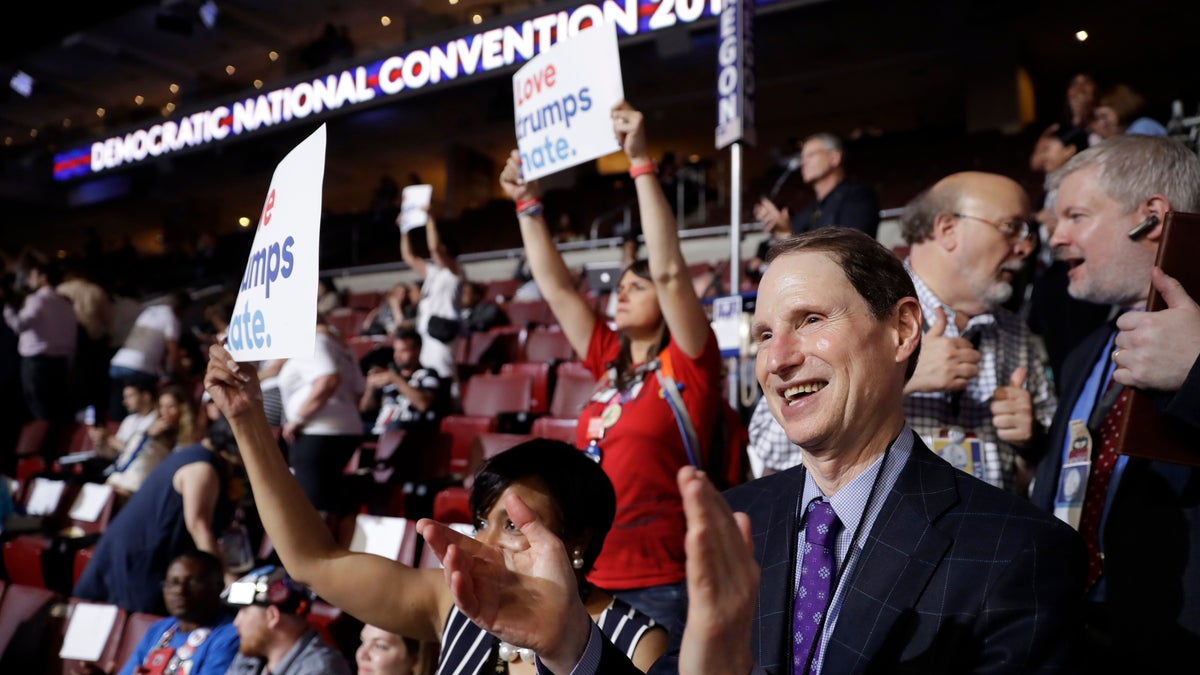
In this July 25, 2016, file photo, Sen. Ron Wyden, D-Ore., applauds during the first day of the Democratic National Convention in Philadelphia. Penn. A frequent critic of the pharmaceutical industry, despite receiving more than $40,000 from opioid drugmakers to his campaigns and his leadership PAC in the past decade, Wyden proposed eliminating the exemption and using the $75 million to fund addiction treatment for low-income pregnant women, who must forfeit their Medicaid prenatal coverage before seeking treatment. (AP Photo/Matt Rourke, File)
This is another installment in an investigation by The Associated Press and the Center for Public Integrity examining the politics behind the nation's opioid epidemic.
The story examines how drug companies are working to convince lawmakers and regulators that abuse-deterrent formulas -new, higher-priced forms of their painkillers - are a key solution to America's opioid crisis. They are making the push even though there is little evidence that the reformulated opioids reduce overdoses or deaths.
AP reporters Geoff Mulvihill and Matthew Perrone and Center for Public Integrity reporters Liz Essley Whyte and Ben Wieder collaborated on the project for 10 months. They pored over hundreds of documents, collected and analyzed campaign finance and lobbying data from 2006 through 2016, and interviewed more than 200 people to gain insights into how the political process influenced the response to the opioid epidemic.
The initial package, published in September, examined how opioid makers rely on a 50-state strategy that includes hundreds of lobbyists and millions of dollars in campaign contributions to help kill or weaken measures aimed at stemming the tide of prescription opioids. It also uncovered how a loose coalition of drugmakers and industry-backed nonprofits called the Pain Care Forum shaped the federal response to the opioid crisis.
Taken together, this information provides a unique national look at how drugmakers and their allies often have sought to delay steps intended to combat opioid abuse while pushing their own priorities with state legislatures, Congress and regulators.
